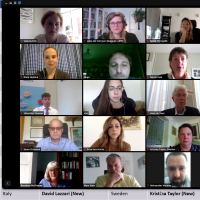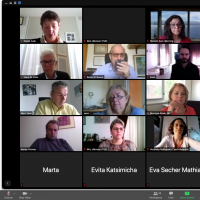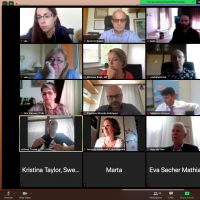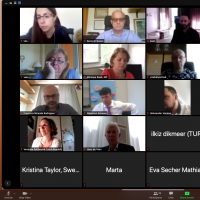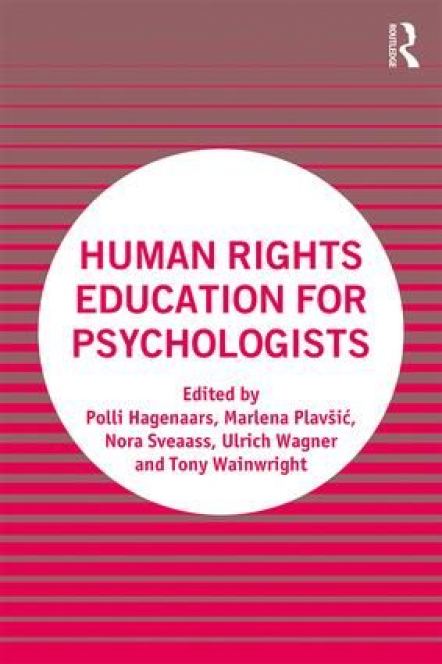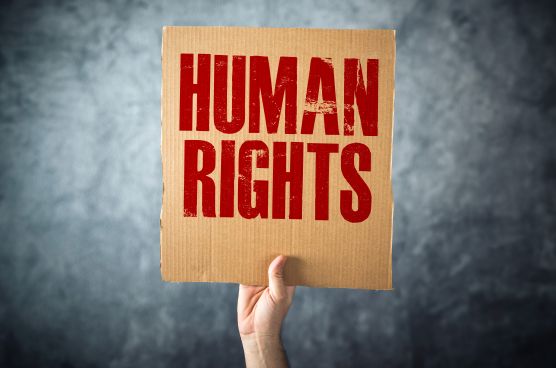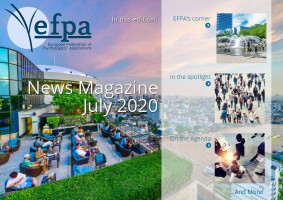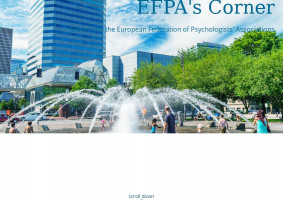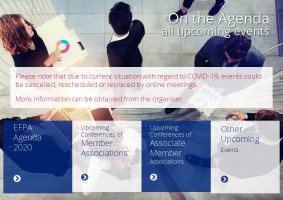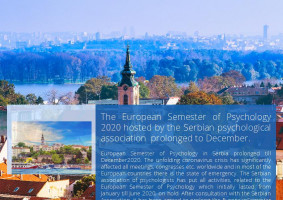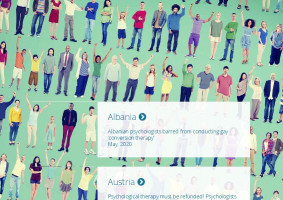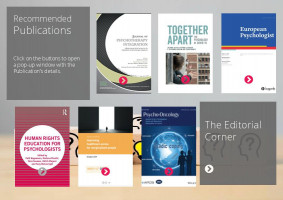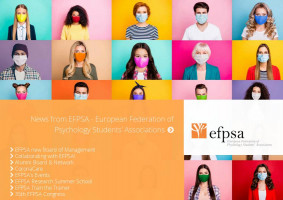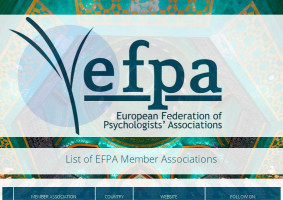Welcome to the EFPA News Magazine, the magazine that was established for the exchange of all relevant news and information among our member associations.
In this edition, we will highlight the information in the new EFPA Psychologists’ Support Hub, which we developed in response to the COVID-19 crisis. The Hub is the result of teamwork from our colleagues from all EFPA groups, member associations, and partner organisations.
Nicola Gale, EFPA vice-president, spoke to her colleagues of EFPA’s Executive Council and in the Head Office about how they coped with the lockdown, and gathered their stories.
Despite these extraordinary times, we provide you as usual news from Europe, activitiesf and developments in our Member Associations and EuroPsy, as well as the updated agenda of meetings and events. Please note that events could be cancelled, rescheduled or replaced by virtual meetings.
We hope you enjoy reading this edition!
The editorial board.
news@efpa.eu
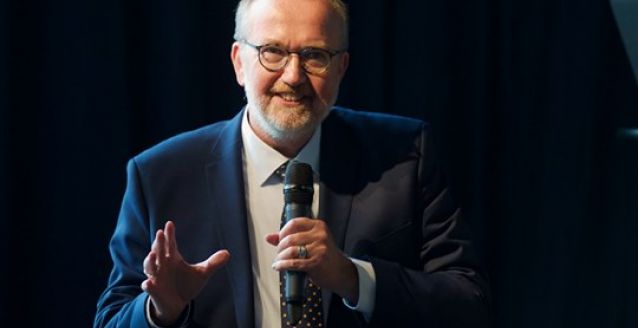
Behind us now really lies a special time with its own worries and challenges. As far as EFPA is concerned, it is impressive how well everything has worked out: online meetings, setting up the COVID hub, interviews and statements, health policy expert forums at conferences and meetings of EU projects. Thanks to the special commitment of everyone and the willingness to adapt to new forms of work, communication and cooperation within our association have increased greatly. The great response to our first virtual presidents' council alone was impressive. And the meeting on "Psychology as regulated profession" was attended at short notice by more than 50 leaders from our member associations.
COVID as a task for psychology, our new forms of work and the special commitment of all has strengthened psychology in its research-based theory and evidence-based practice. Psychology ensures a life in freedom and self-determination even in these weeks and months of self-restraint and uncertainty. Now we are entering a time of relaxation and possible setbacks, of normal everyday life and new risks. Psychology helps here too.
As an association, it will also be a matter of evaluating the experiences and keeping the good. For example, we have learned that through virtual meetings, instead of 15, there are now 50 participants. We also learned that many people appreciated the webinars and the hub as an offer, including political leaders of the EU.
More of this? Keep up the good work? Yes, sure! But before that comes the holiday season! On behalf of all the members of the Executive Board and the Head Office team, I wish you and all those who are important to you a happy and relaxing holiday season!
With warmest regards,
Christoph Steinebach, EFPA President
European Psychology and the Covid-19 crisis
June 5, 2020
EFPA President, Christoph Steinebach, gave an interview to CEPLIS (European Council of Liberal Professions).
CEPLIS has launched a series of interviews with the Presidents of its member associations regarding the impact of the pandemic on the present and the future of the liberal professions.
Christoph Steinebach, President of the EFPA, has opened these series of interviews.
EFPA’s Presidents met for the first time in a virtual meeting. 40 representatives of 25 member associations shared their activities and experiences related to the Covid19 crisis. EFPA’s work on COVID19 has been presented by Nicola Gale and Anna Leybina and the new EFPA Psychologists Support Hub (http://psychologists-support-hub.eu) has been welcomed by all participants. Other items were the new guidelines for the workplans of EFPA’s working groups. Goals and deliverables will now directly be linked to the Activity agenda 2019-2021 of the Executive Council. Secretary General Ole Tunold announced the launch of the project ‘Psychology as a regulated profession’ which got much interest by the participants.
Eleni Karayianni talked about the implementation of a EuroPsy working group (as decided by the GA Moscow) which will work on EuroPsy competencies, Training Standards and CPD. After a very interesting meeting, Christoph Steinbach closed the meeting thanking all participants for their contribution and wishing them all healthy and relaxing holidays.
Digital meetings:
Standing Committee on Work and Organizational Psychology
July 03, 2020
The Standing Committee on Work and Organizational Psychology, which was renewed earlier this year, has conducted two digital meetings. Participants from 12 countries (Albania, Austria, Croatia, Czech Republic, Denmark, Germany, Norway, Romania, Serbia, Sweden, Switzerland, and Ukraine) participated.
The Committee is developing a work plan for the coming year, based on how psychosocial work environment risk assessments are conducted in each member state. The Committee wishes to map the countries legislation and the role of work and organizational psychologists in this area. Subsequently, one wishes to develop a plan for how the Committee, through EFPA, can promote the psychologists' particular competence in developing and selecting measuring tools that can be used in such risk assessments, interpreting and disseminating results that emerge, as well as implement interventions based on them.
By: Bjørn Lau, Convenor of the EFPA Standing Committee on Work and Organizational Psychology
Digital meeting
Standing Committee Crisis,
Disaster and Trauma Psychology
May 15, 2020
25 members of the Standing Committee Crisis, Disaster and Trauma Psychology representing 21 countries met in a special meeting on the psychosocial consequences of the Corona virus pandemic outbreak.
Updates were given on the situation in Norway, Denmark, Greece, United Kingdom, Spain, Luxembourg, Albania, Cyprus, Ukraine, Iceland, Belgium, Finland, Lithuania, Germany, Turkey, Serbia, Slovakia, Austria, Russia, Czech Republic and the Netherlands.
Important issues were discussed like: learning working online in psychosocial support, preparing post-crisis aftercare, the influence of the political situation, the number of affected health care workers, the media attention for the psychosocial consequence of this virus outbreak and the measures taken, the voluntary work of psychologists, the increase of domestic violence, the information material which has been developed for the general public and special target groups.
Presentations were given on the psychological consequences for families and children, and the specific role of psychologists during the crisis. A model for organisations was presented on dealing with risks, giving organisations guidance how to help employees returning to work, depending on the needs. The organisation of the public health on the national and local level, and the measures taken on a national level and the challenges it brings with it.
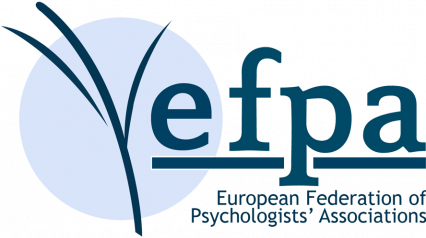
The Standing Committee held her meeting online due to the circumstances. Normally the Standing Committee meets twice a year in one of the European countries, combined with a symposium for the hosting National Association and the psychologists of that country working in crisis, disaster and trauma.
The different representatives stressed the importance of meeting with their colleagues around the topic of the psychosocial consequences of the Corona virus pandemic outbreak, as an excellent opportunity to learn in a fast way on this new challenge for psychologists. It gives colleagues access to a wide range of expertise. Also some psychologists have to work rather isolated or are dealing with a lack of resources. The rapid exchange of all the material that has been developed in the different countries in all the different languages, and translating original material proved also to be very helpful in the work during the Corona virus pandemic outbreak.
The Standing Committee Crisis, Disaster and Trauma Psychology is part of the European Federation of Psychologists’ Associations and has 33 members, representing 25 countries.
For more information visit www.efpa.eu, or the webpage of the Standing Committee.
You can contact your national representative who is member of the Standing Committee, or you contact the convenor Magda Rooze magda.rooze@gmail.com
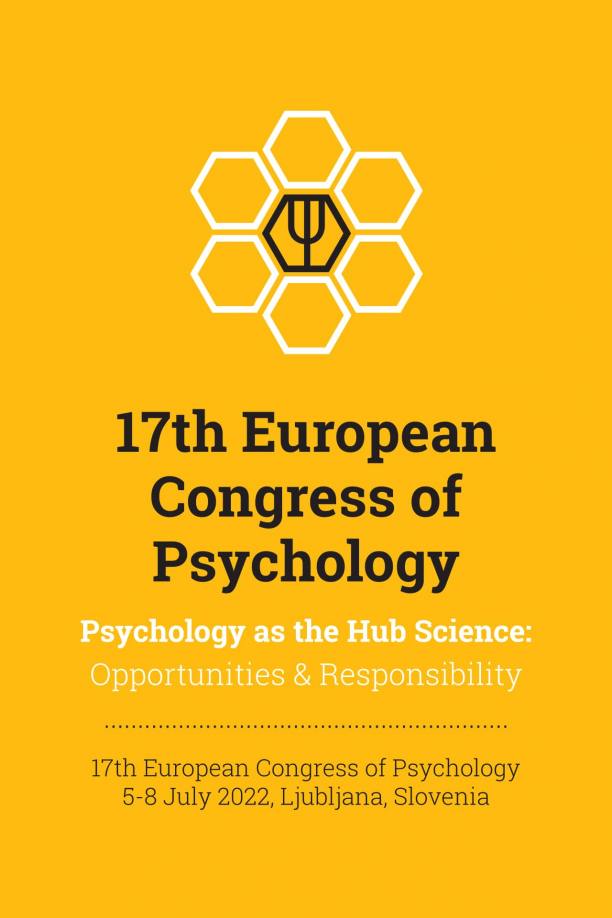
Submit abstract
Who would you like to hear as a keynote speaker in Ljubljana at ECP 2022?
Tell us here and have a chance to WIN your congress registration for FREE


Blog:
Introduction to Practical Health Psychology
Recommended by EFPA Board Scientific Affairs
The blog 'Practical Health Psychology' aims to inform health practitioners and intervention providers and provides short summaries and practical recommendations based on topical Health Psychology research translated into several European languages.
Visit the blog practicalhealthpsychology.com


Members of two EFPA Boards have collaborated in producing a book in Portuguese: The Future of Everything (!)
Members of two EFPA Boards (Board of Ethics and the Board of Promotion and Prevention) have collaborated in producing a book in Portuguese on the Future of Everything.
This ambitious task was led by Margarida Gaspar De Matos and you can see the team who collaborated on this work doing brief talks on YouTube
This book presentation is in Portuguese, but by the end of the first 10 minutes you see Tony Wainwright's contribution in English.
More information about this book can be found in this edition of the news magazine under 'News from members', Portugal .
Global Network of Psychologists for Human Rights (GNHR)
Psychology matters in Human Rights – Human Rights matter in Psychology
The International Council of Psychologists (ICP) and the Board Human Rights & Psychology of the European Federation of Psychologists’ Associations (EFPA ) are collaborating to establish the GNPHR.
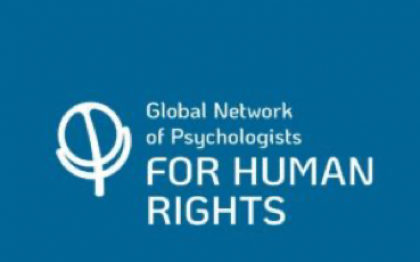
A new independent global network for psychologists interested in the intersection of psychology and human rights is being launched. The Global Network of Psychologists for Human Rights (GNPHR) aims to unite psychologists committed to human rights, and to work together toward a human-rights based and inclusive psychology.
-
The website of the GNPHR contains articles and information about human rights violations as well as good practices, events and blogs. There is an important section on international voices of psychology organisations against racism have been brought together.
As a taster for the other sections, the one on human rights and covid-19 is well worth a look.
- There are six articles so far that are thought provoking and challenging. They include an article by Neil Rubin that describes the way the public health measures that are necessary to address the pandemic may be misused. As he says:
We are in a state of emergency– truly exceptional circumstances. Some refer to it as a war with a virus. But there is a phrase that is used to capture how, during war, judgment may become skewed, that significant miscalculations and profound errors in behavior may be made in the “fog of war.”
And in such a circumstance, questions emerge with respect to human rights. Are there circumstances in which human rights may need to be compromised for the greater good? When should we hold firm to the protections of human rights principles even when unpopular?
There are many challenges before us that require thoughtful, informed leadership.
Here are some to consider
There are also sections on psychology, human rights and
- The climate and environmental emergence
- Education in Psychology
- LGBTQI+
- Migration/ Displacement
- Personal Data and Data Rights
- Youth
- Events
The ICP hosts the Network website, with editorial oversight from a small international steering committee, co-chaired by the ICP and the EFPA Board Human Rights and Psychology and assisted by an advisory council with broad global representation.
The Steering and Advisory Council will work to provide information and knowledge about diverse aspects of human rights and psychology and their application, stimulate discussions and opinions, and promote the active engagement of psychologists in human rights protection.
The Network plans to affiliate with relevant professional associations, both human rights-oriented as well as psychological, and individual colleagues to exchange information, support colleagues working in difficult situations or under threat, and to raise awareness about human rights under pressure and violations in relation to psychology or psychologists. With its global perspectives, the GNPHR gives an opportunity for the exchange of multiple perspectives on research findings and good practices.
Network members are encouraged to help build the network by contributing relevant academic or media-related articles, or by contributing an opinion piece or commentary.Human Right education for psychologists
Extracts of the book are now available
Following from the last news magazine where we reported that the book 'Human rights education for psychologists' had been published, we are now pleased to be able to share some extracts kindly provided by the publisher RoutledgeThe preface provides an overview of the book and explains its purpose and scope. You can read it here
There are two chapters that are available to read:
- The first by the Convenor of the Board Human Rights and Psychology (BHRP) , Professor Ulrich Wagner and is entitled 'Forced migration: Psychological contributions that might help to improve the human rights situation.' See chapter13
- The second is co-authored by two other members of the BHRP, Marlena Plavic and Artemis Giotsa, and a past member of the Board, Tony Wainwright entitled 'Core competences for psychologists practising human rights-based approaches.' See chapter 17
Routledge has also made available other extracts in the BPS magazine, The Psychologist
Follow us on
facebook

- There are six articles so far that are thought provoking and challenging. They include an article by Neil Rubin that describes the way the public health measures that are necessary to address the pandemic may be misused. As he says:

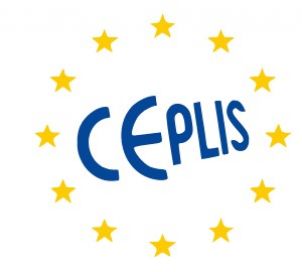
_w200_h200_1.png)
